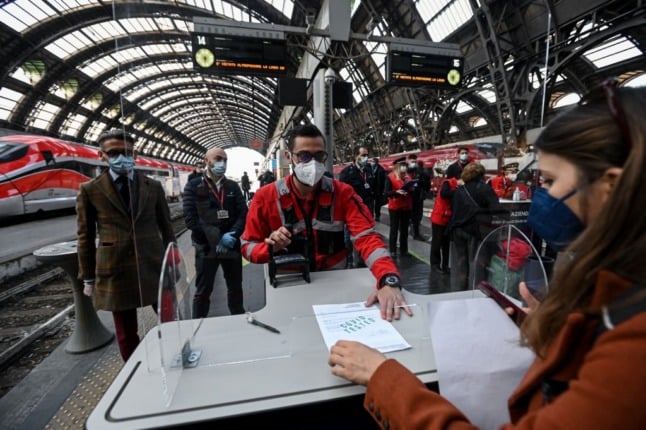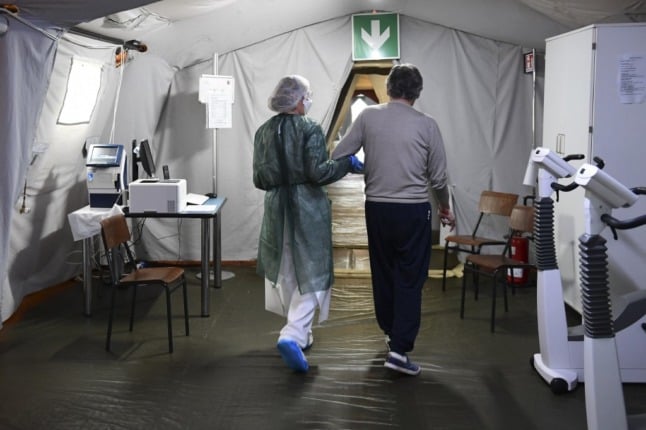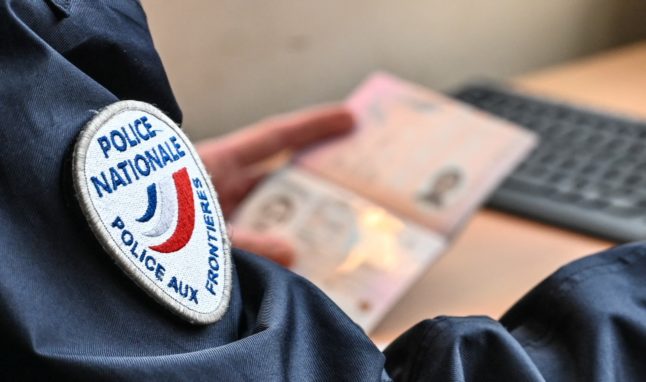Like the other countries in the European Union, Italy says there are three ways to qualify for its health passport: by getting vaccinated against Covid-19, by testing negative for the disease, or by showing you’ve had it and successfully recovered.
While the certificazione verde or “green pass” isn’t much practical use yet, Italy and the rest of the EU plans to make it the key to quarantine-free travel from late June onwards.
READ ALSO: What is Italy’s ‘green pass’ for travel and how do you get it?
While showing a vaccination certificate or test result is fairly straightforward, demonstrating you’ve recovered from Covid can be more complicated.
Here’s what we know so far about what proof Italy will accept.
How does Italy define recovery from Covid-19?
Covid-19 is usually diagnosed in Italy via a molecular (PCR) swab test.
If you test positive, even without symptoms, the Health Ministry mandates that you must self-isolate for at least ten days. If you don’t develop symptoms during this period, you can get another molecular test: if it comes back negative, you are considered to have recovered.
People who have symptoms must wait until they go for at least three days without symptoms (and a minimum of ten days since their positive test) before getting tested again.
People who continue to test positive after their symptoms have disappeared should continue to isolate for 21 days after they first showed symptoms (and at least seven days since they were last symptomatic). After this point, unless advised otherwise by a doctor, they are allowed to end their isolation.
If you believe you had Covid-19 but never confirmed it with a test or got treated by a doctor, you will not be able to demonstrate that you have recovered. You should use a vaccination certificate or recent negative test result as a green pass instead.
READ ALSO:
- How do you get an Italian Covid vaccination certificate?
- How to get a coronavirus test in Italy
- Can I use a foreign vaccination certificate to access Italy’s health passport?

Does Italy accept antibody tests as proof of recovery?
No. The Italian government has not indicated it will accept antibody tests, which involve analysing your blood for antibodies to Covid-19 that indicate you have had an immune response to the disease, as proof you have recovered.
We don’t yet know for sure how long antibodies can remain in the body or how reliably they indicate immunity.
What does an Italian Covid-19 ‘recovery certificate’ look like?
There’s no fixed template, but to be used as a green pass your certificato di guarigione (“certificate of recovery”) should include the following information:
- Full name
- Date of birth
- Disease you have recovered from: Covid-19
- Date of first positive test result
- EU Member State of test: Italy
- Certificate issuer
- Certificate valid from … until …
- Unique certificate identifier: a way to prove the certificate is genuine, such as a QR code
According to the Italian government’s decree of April 22nd, which sets out the rules for the green pass, the document can be on paper or in digital form.
Where can you get one?
The decree states that you can have your recovery certified by the medical facility where you were treated for Covid-19, or if you weren’t hospitalised, by your usual doctor.
If you are enrolled in Italy’s public health system, your test results and treatment will be logged in your medical records, which you can access online.
Go to the website for your region’s health service and look for a section marked fascicolo sanitario elettronico, or ‘electronic health file’. You will need either a SPID digital ID or an electronic Italian ID card (CIE) to log in securely.
READ ALSO:
- What is a SPID and how do you get one?
- How to use your Italian ID card to access official services online
From there, you should be able to find a record of your illness and download a copy to print out or save on your smartphone.
It’s common in Italy to require proof of recovery in order to return to work or school after contracting Covid-19, so doctors should be accustomed to issuing certificates.
Some regional health services already have simplified procedures in place for requesting one, for example by emailing a dedicated service or filling in a form online. Check the websites of your regional health service and your local health authority (known as an ASL, AUSL or USL) to find out all your options.
If you are not part of the public health system, speak to your private doctor or health insurer, if you have one, or contact your local health authority. Even private test providers are required to notify Italy’s public health authorities of a positive result for tracing purposes, so there should still be an official record of when you contracted the disease.
How long is a Covid recovery certificate valid for?
It’s valid for six months from the date of your recovery (in most cases, the date of the negative test result that confirmed you could come out of isolation).
Your recovery certificate is immediately invalidated, however, if you contract Covid-19 again within those six months.
If you had Covid and recovered before Italy introduced its immunity pass at the end of April, whatever certification you have is also valid for six months from the date of your recovery (so it’s only of use to you now if you recovered in December 2020 or later).
What if I had Covid-19 outside Italy?
The instructions that the Italian government has provided so far apply to people who live in Italy and recovered from Covid-19 here.
It is not yet clear what proof Italy will accept if you had the disease elsewhere. But since it has agreed to accept health passes issued anywhere else in the EU, whatever proof of recovery you can use to obtain a pass in another EU country should also be valid in Italy.
READ ALSO: What’s the latest on how the EU’s ‘Covid passports’ will work for travellers?
The rules vary by country: in Austria, for example, you can show a medical certificate or an antibody test. Germany requires one positive PCR test from between 28 days and six months ago, while France asks for two test results: one positive, from between 15 days to six months ago, and a follow-up negative test.
For people travelling to Italy from outside the EU, the procedure is even less clear. The EU has not yet confirmed whether it will recognise proof of recovery (or vaccination, or negative tests) from countries outside the bloc, such as the UK or the US.
The European Commission is in negotiations with British and American officials on ways to lift restrictions for travellers this summer, but the details are still to be decided.



 Please whitelist us to continue reading.
Please whitelist us to continue reading.
Member comments